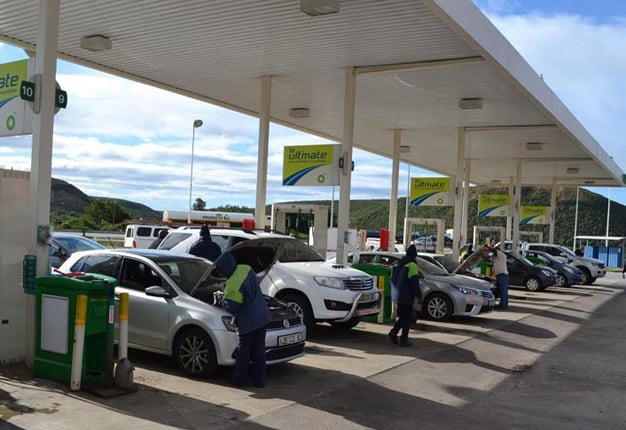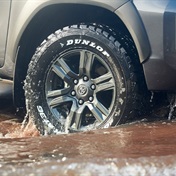
Johannesburg - South African motorists faced yet another increase in fuel price but not many are aware of the quality of fuel they use.
Earlier in June 2016, BP South Africa launched its new fuel locally. Wheels24’s Charlen Raymond interviewed Mbulelo Mthi, BP SA’s regional fuels technology deployment manager, about the country’s fuel, as well as finding out what he thinks the future holds for fuel in SA.
Mthi was also one of the scientists involved in the production of BP’s new fuel: BP Ultimate with Active technology.
READ: BP fights rising fuel prices for SA motorist
W24: Why is South Africa’s fuel quality lower than European countries?
Mbulelo Mthi: Basically, I wouldn’t say it’s lower; in a sense. Our fuel locally is governed by the South African national standards and it’s basically set by the government through the petrol and products act and every stakeholder contributes into that. So in setting the standard, the government has to consider a lot of things.
In SA you still have old carburettor vehicles, you’ve got fuel injection vehicles, to a very small niche of downsised, boosted engines which are direct-injected that would require what you’d call ‘cleaner fuel’. The vast majority still require the current type of fuels.
W24: Does government make provisions for all cars on SA roads? What about new models?
BP: Our government needs to think about all of that and also think about whether our country can afford cleaner fuels. So there’s a lot of balancing acts that the government needs to take into account in deciding what the perfect quality of fuel for the country is.
It’s not dirty, it’s not less clean than other countries; it (our fuel) suits the requirements of the majority of South Africans.
W24: Is the quality of SA’s fuel affecting the local vehicle industry?
BP: I don’t think it actually impacted the vehicle industry (negatively), because downsised, direct-injected vehicles are in SA. When you think about Ford’s 1.0-litre EcoBoost engine - those are the latest type of engines.
They are here, they are functioning - no problem. On the diesel side; the latest technology in terms of injection, is here in SA. So the fuel that we have is adequate. It’s not affecting new technology.
W24: BP's new fuel - Ultimate with Active technology - please explain how it's aimed at being beneficial to SA motorists.
BP: So what we’re introducing now is like a cherry on top, because you’ve got your specified fuel quality that the government set, and then on top of that we then say ‘Ok, Mr Motorist, we would like you to experience a little bit more quality, more fuel economy, a smoother ride, etc. with our additive technology’.
W24: What are the costs involved in acquiring low-sulphur, high octane fuel?
BP: The average age of a motor vehicle in South Africa is about 13 to 14 years. So you do have a handful of new vehicles with the latest technologies. Think about this: upgrading refineries in SA to produce your low sulphur and maybe even higher octane fuel would require $40-billion - not rands, dollars - of investments into our refineries. So consider the aforementioned investment and whether our economy can handle it.
READ: BP launches its best ever range of dirt-busting fuels
So you can see the balancing act the government has to play with. Right now we truly believe that our fuel is adequate for the South African market.
W24: Will SA be in a position to eventually use the same quality fuel as Europe?
BP: We do hope so! From an environmental perspective: sometime in future, absolutely. Europe is a developed country, so technology hits there first. So looking at where Europe is right now, SA will follow. Eventually we will get there but the speed of investment into refineries and whether the economy can handle it will all dictate when that will be.
CR: Has the rise of electric and/or hybrid cars affected the fuel industry?
BP: In SA? (gives a laugh) The quick answer is no. This is more globally than just SA. So SA will experience this in a similar way, but on a much smaller scale. Right now we have, let’s say, a billion vehicles that are already out there and the average vehicle’s duration is 13 to 14 years.
It’s going to take a long time to get rid of those vehicles or to get them out of the system. So fuel will be used in the foreseeable future.
Also, the uptake of electric and hybrid vehicles is very low, particularly in SA. We predict that in the next ten years these vehicles will not occupy more than 5% of SA’s total carparks and we do not believe that sales will skyrocket.
READ: 11 ways to drive fuel efficiently in SA
Manufacturers are trying really hard to get acquire fuel economy out of their vehicles rather than getting rid of the internal combustion engine.
So the way that we are contributing is with developments like Active technology where we help the manufacturer by producing a fuel that allows their vehicles to run as they designed and manufactured it, for a long time.
We don’t see electric vehicles taking over anytime soon.




 Publications
Publications
 Partners
Partners










